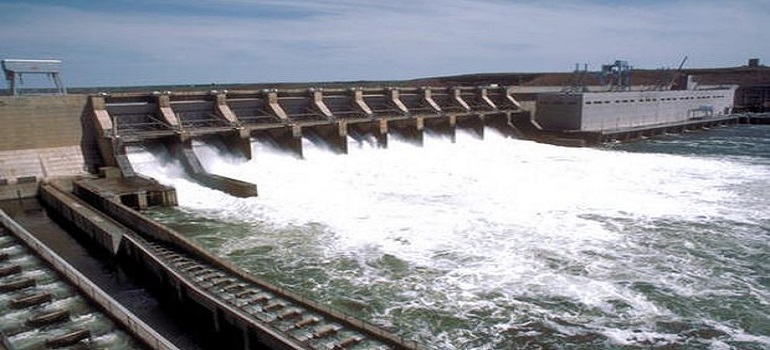
Nepal has revived a deal with a Chinese state-owned firm to construct a USD 2.5 billion hydroelectric plant, that had been scrapped by the previous government, officials said.
Prime Minister K P Oli’s governemnt last week decided to hand over the Budhi Gandaki Hydropower Project, to the China Gezhouba Group Corporation (CGGC), reversing the former Sher Bahadur Deuba government’s decision to develop the 1200 MW project with internal resources.
A Nepal Cabinet meeting on Friday directed the Energy Ministry to initiate the process to award the project to the Chinese developer. As per the Cabinet decision, the ministry has been asked to hold talks with the Gezhouba, prepare a proposal, and strike a deal to execute the USD 2.5 billion reservoir project, the Kathmandu Post reported.
Following the government decision, the Energy Ministry will now invite the Chinese company for talks and prepare a draft of the memorandum of understanding (MoU) before signing it, according to multiple sources at the ministry.
“The understanding will be signed to execute the project under the engineering, procurement, construction and financing (EPCF) model,” said one senior official.
This is not the first time that the government has roped in the Chinese developer to develop the Budhi Gandaki project. The Pushpa Kamal Dahal-led government had, in May 2017, also signed an MoU with the CGGC to execute the project under the EPCF model.
The agreement invited controversy as the project was handed to the Chinese company without initiating a competitive bidding process.
However, the Deuba administration scrapped the deal in November last year citing irregularities. After cancelling the agreement with the Chinese company, the then government had plans to build the project using domestic financial resources via the state-owned Nepal Electricity Authority. Subsequently, a committee was formed to explore financing options to build the power plant.
The committee had suggested that the government develop the project on its own by providing viability gap funding, covering around one-third of the project’s development cost. The Cabinet during the Deuba administration approved the committee report and agreed to provide the gap funding.
But the plan never materialised as the government changed before the decision could be implemented. The new administration under Oli, who had publicly criticised Deuba’s decision to scrap the deal with the Chinese company, disowned the previous administration’s decision.
Landlocked Nepal suffers from massive energy shortages and is compelled to buy power from neighbouring India.
Experts have criticised the Oli government’s decision to rehire the Chinese company to develop the project without competitive bidding, saying such a move might make the project expensive.
The Budhi Gandaki project has been touted as a key project to resolve the perennial power crisis in the country.
More than 8,000 households will be affected by the project, according to a new report. It states that the reservoir for the storage project will submerge 3,560 households, which will have to be resettled in an alternative location with due compensation. As many as 4,557 houses will be partially affected by the project.
Source: PTI

